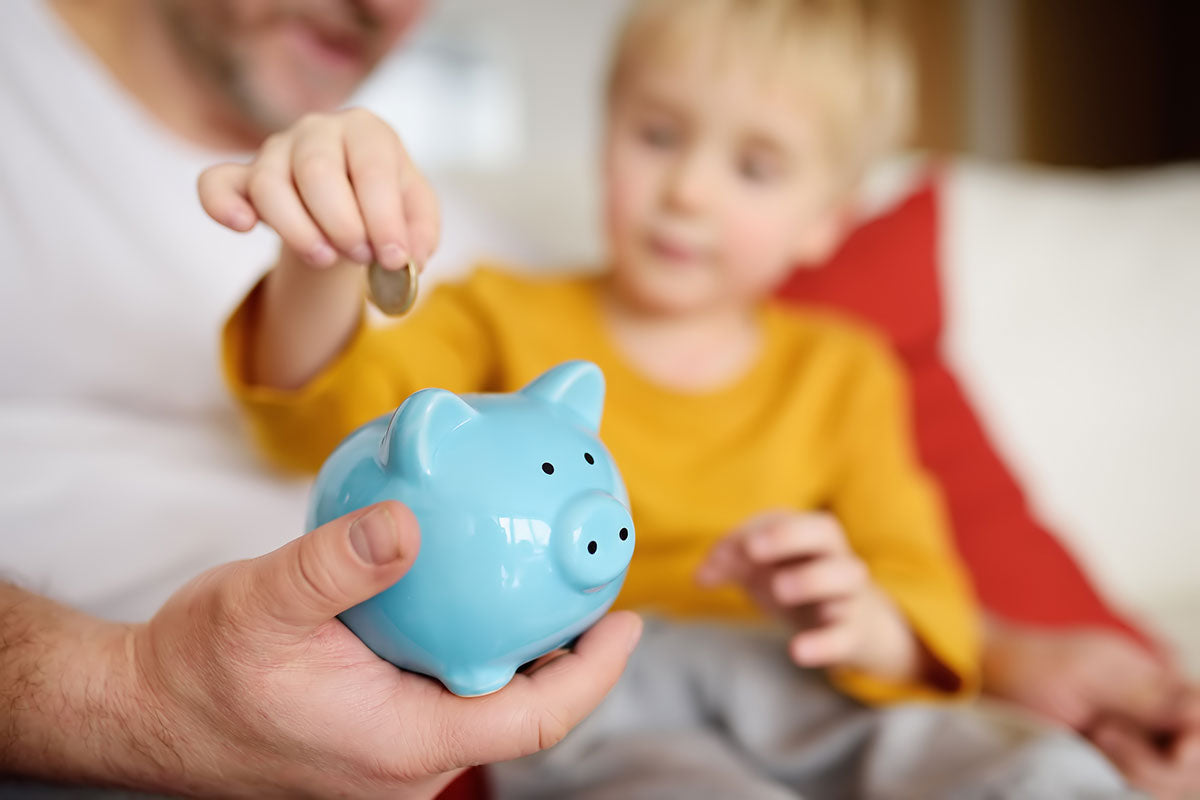Pocket money: how children learn to handle money

Every family handles it differently. Some parents give their children pocket money weekly, others monthly, and still others not at all. How much money you give your child is still your decision. However, if you decide to give pocket money, the question often arises, given all the differences, as to what is appropriate for children according to their age.
Appropriate age for pocket money
With the help of pocket money, children can learn from an early age how to handle money and appreciate its importance. The amount of pocket money depends on various factors. Firstly, it depends on the parents' income. In addition, it must be decided which expenses and the associated responsibilities the children should already bear. In this case, it makes sense to set the pocket money based on the child's age. The following table serves as a guide to the current guideline:
|
Age of the child |
Pocket money amount |
|
< 6 years |
0.50 - 1.00 € / week |
|
6 years |
1.00 - 1.50 € / week |
|
7 years |
1.50 - 2.00 € / week |
|
8 years |
2.00 - 2.50 € / week |
|
9 years |
2.50 - 3.00 € / week |
|
10 years |
16,00 - 18,50 € / month |
|
11 years |
18,50 - 21,00 € / month |
|
12 years |
21,00 - 23,50 € / month |
|
13 years |
23,50 - 26,00 € / month |
|
14 years |
26,00 - 31,00 € / month |
|
15 years |
31,00 - 39,00 € / month |
|
16 years |
39,00 - 47,00 € / month |
|
17 years |
47,00 - 63,00 € / month |
|
From 18 years |
63,00 - 79,00 € / month |
Children aged ten and over can rarely plan their finances for a month. For this reason, you should initially pay a weekly flat rate before making monthly payments.
What children spend their pocket money on depends in most cases on their age. They mainly use their money for food and drink - especially sweets and fast food, as well as toys and magazines. Trips and cell phones are also paid for with pocket money. Girls tend to spend their money on clothes, magazines or sweets, while boys prefer to spend their money on computer games or sweets. They both have one thing in common: they save roughly the same amount of pocket money. It is important with the pocket money principle that the learning effect behind it is retained. As a result, the golden rule is that parents should not interfere with their children - because prohibitions and requirements weaken children's independent handling of money.
Sometimes, especially for parents, the way their children spend money seems inconsistent, but this can be very important for the children. If children make a bad purchase, this also has a positive effect and offers children an experience that they can use as a guide. Parents should provide support in this regard if their children want advice on financial matters and get tips. Finally, the pocket money principle should be used independently and not as a punishment or reward.

Conclusion
It can be concluded that paying pocket money is a worthwhile consideration for child development, as it teaches children basic knowledge about finances, thrift and responsibility. In addition, it can be beneficial for parents to communicate openly and honestly with their child about their financial situation in order to prepare them for later life.
Sources:
- (1) Langmeyer, Alexandra/Winklhofer, Ursula (2014): Pocket money and money education. An expert report on the topic of children and their handling of money with updated recommendations on pocket money. Munich
- (2) kizz. Parents’ magazine and children’s books: Economics for beginners, https://www.herder.de/kizz/kinderentwicklung-erziehung/entwicklungsphasen-kinder/taschengeld-aber-ab-welchem-alter-wirtschaften-fuer-anfaenger/ [13.01.2022].


